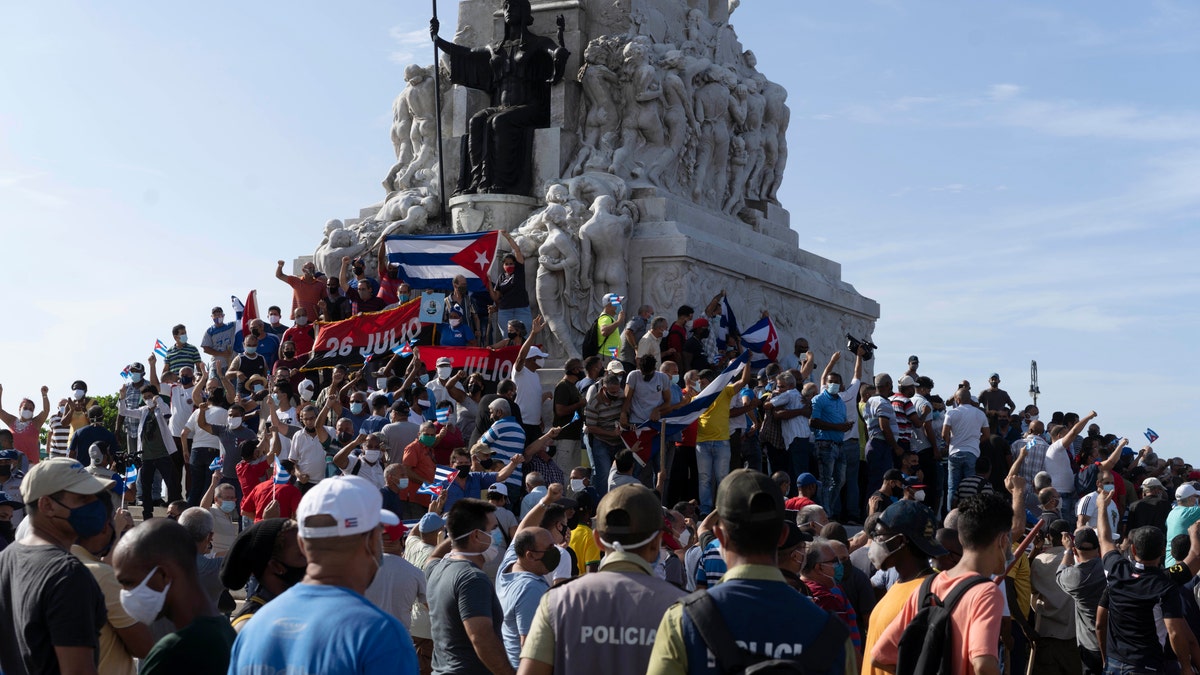How should the United States respond to the situation in Cuba?
Former state department official Christian Whiton discusses possible US intervention in Cuba on 'Your World'
Rep. Alexandria Ocasio-Cortez, D-N.Y., broke her silence Thursday on anti-communism, pro-freedom protests that have broken out in Cuba by partially blaming the suffering of "everyday people" on the historical legacy of the U.S.’ 60-year-old embargo.
"We are seeing Cubans rise up and protest for their rights like never before. We stand in solidarity with them, and condemn the anti-democratic actions led by President Díaz-Canel," the self-proclaimed Democratic socialist said in a statement.
She called the communist government’s suppression of media, speech and protest "gross violations of civil rights."
But she then evoked the United States’ "contribution" to what is turning out to be Cuba’s worst crisis in decades.
"We also must name the U.S. contribution to Cuban suffering: our sixty-year-old embargo," she said.
Her comments came after Black Lives Matter issued a statement also blaming the U.S. embargo for the country's instability and credited the Cuban government for historically granting "Black revolutionaries" asylum.
BLM called for the U.S. to lift the sanctions that are "cruel and inhumane policy, instituted with the explicit intention of destabilizing the country and undermining Cubans’ right to choose their own government, is at the heart of Cuba’s current crisis."
Like Ocasio-Cortez, fellow Democrats have parroted Cuba’s communist government’s own talking points, blaming the U.S., rather than the communist government for its plight. Many have called on President Joe Biden to end the decades-long embargo on the country.

Anti-government protesters gather at the Maximo Gomez monument in Havana, Cuba, Sunday, July 11, 2021. Hundreds of demonstrators took to the streets in several cities in Cuba to protest against ongoing food shortages and high prices of foodstuffs. (AP)
The U.S. imposed the embargo after Fidel Castro overthrew the U.S.-backed regime of Batista in 1959. Since then, presidential administrations have renewed the embargo, which is intended to isolate Cuba economically and diplomatically.
BIDEN CALLS CUBA A ‘FAILED’ STATE, CONSIDERS US TECH OPTION TO SEND INTERNET SERVICES
Former President Barack Obama attempted to normalize relations with Cuba during his second term. Those policies were reversed under President Donald Trump, who imposed new sanctions.
Last month, the United States voted against a U.N. resolution that overwhelmingly condemned the U.S. economic embargo on Cuba for the 29th year.
Ocasio-Cortez called the embargo "absurdly cruel," adding that "like too many other U.S. policies targeting Latin Americans, the cruelty is the point."
CLICK HERE TO GET THE FOX NEWS APP
"I outright reject the Biden administration’s defense of the embargo. It is never acceptable for us to use cruelty as a point of leverage against every day people," she wrote.
Fox News' Andrew Kugle and The Associated Press contributed this report.

























